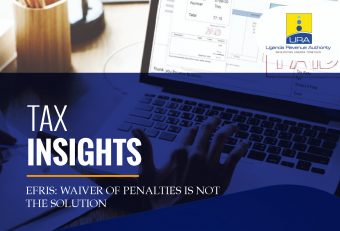There is no doubt that there have been massive disruptions at the work place in light of the global COVID-19 pandemic. The pandemic has posed a major challenge for employers in relation to their ability to retain employees in the short and medium terms. Globally, the majority of Governments have issued Public Health Policy and Legislative measures that have resulted in the disruption of the routine work schedules for the majority of the non-essential services or sectors. This has caused significant disruption to employer revenue streams which in turn, is affecting their ability to meet their ongoing wage bills.
The inability of employers to meet their short to medium term wage bills is compelling the vast majority of them to reconsider their positions and contractual obligations. What is for certain under the prevailing circumstances, is that a number of employment contracts may be affected in order to help the employers keep afloat.
This write up is intended to primarily explore the various options available to employers in the circumstances that will both respect and honor their legal Statutory and Contractual obligations/ duties and at the same time minimize the legal risk that can emanate from irregular actions.
Current situation in Uganda
On the 20th of March, 2020, the Minister of State for Labour, Employment and Industrial Relations, Honourable Mwesigwa Rukutana delivered a press statement drawing the attention of employers, workers and the general public on employment matters. He noted that the spread of the virus will impact the world of work across three key dimensions including the quantity of available jobs, the quality of work and the effect of the spread of the virus on specific groups of people who are more vulnerable to adverse labour market outcomes.
Furthermore, the Permanent Secretary, Ministry of Gender, Labour & Social Development, issued further guidelines on the 25th March, 2020, to employers on the employment effects of Covid-19 on employment relations.
In light of the above, it is important for employers and employees to consider a number of statutory and contractual employment relationship issues. For purposes of this write-up, we shall divide these issues into two broad categories, to wit; the contractual related issues and termination related issues;
- Contractual issues
i) Safety in workplaces
Companies must place emphasis on employee safety in light of Section 13 and 14 of Occupational Safety and Health Act. The employer is under an obligation to take as far as reasonably practicable all measures for the protection of their workers. They ought to mitigate the risks of spreading illness; precautionary measures and relevant information should be considered and shared with the employees.
ii) Unlawful Discrimination
Discrimination in employment is prohibited under S.6 (3) of the Employment Act. Therefore, in implementing health policy measures such as mandatory health screenings or placing restrictions on certain employees from working, these ought to be justifiable such as an employee’s recent travel history or close contact of an employee with an infected person.
iii) Sick leave
In the unfortunate event that any of the employees gets infected with Covid-19 then Section 55 of the Employment Act will come into operation. It provides that an employee incapable of working due to sickness or injury is entitled to sick pay. However, in the event that they are still sick at the expiration of the second month, the law permits the employer to terminate the contract.
iv) Remote working.
Despite the prevailing constraints that rendered it impossible for a majority of employees to physically commute for work, there are a number of employees in some sectors who are still in position to continue working remotely from their respective homes. This working arrangement has enabled employers to maintain their work flows and processes. During such periods, employees are deemed to be working and as such, such time cannot be counted as absenteeism or computed as part of the employee’s annual leave.
During the period away from the work station employees would be required to as much as possible be able to be accessible via communication channels such as telephone or emails. In some instances, such employees may be required to physically report to work as a routine check.
v) Salaries and allowances
Salaries, allowances and other conditions of service would principally remain the same as per the employee’s contract. However, allowances such as transport and meal allowances would need to be revisited during the period when employees may be working remotely, given that these are meant to facilitate the employees commute from home to the work station.
vi) Annual leave
Section 54 of the Employment Act, requires that annual leave shall be taken at such time as shall be agreed upon between the employer and the employee. Employees should therefore be encouraged to take any pending annual leave during the time when their mobility to work is constrained or restricted.
- Termination options
On account of the prevailing Economic and Policy realities on the ground, many employers may be constrained to terminate or modify the employment contractual relationships with some of their employees in a bid to remain afloat. There are a number of options that can be explored in an escalating manner depending on the particular facts affecting the individual employers.
i) Casual Employees
All casual employees would in the interim be advised to stay at home and not to report for work. This way, there will be no liability that will accrue for the Company, until such a time when there is clarity in relation to the Work environment.
ii) Permanent Employees
In relation to this category of employees, we discuss the various options that can legally be used in the short term (During the First phase of the fourteen (14) day lock-down) and the potential full and long term Lock-down.
We emphasize that, for this category of employees, the terms and conditions of their service is governed by the Employment contracts and the Employment Laws of Uganda.
a) Short Term Lock-down
On account of the Presidential Directives, the ability of most employees to commute to work on a daily basis has been frustrated through an exceptional event and as such it remains the obligation of the employer to pay the employee for such a period.
However, considering that the Presidential Directive affects both the employer and the employee, it is advisable that the employer engages the employees (especially those who are not working from home/ remotely working), to apply for Annual Leave during the 14-day Lock-down period. Whereas Annual Leave is a subject for consent between the employer and employee, it is possible for the employer to demand that the employee takes his/ her Annual Leave during particular periods, especially if the HR Manual permits for such.
The expectation is that, after the lapse of the 14-day Lock-down, the ability of the employees to report to work will have been reinstated and therefore their ability to execute their employment obligations.
However, in the event that the Lock-down is either escalated or extended for a longer time that the available leave days can permit, then the ability of the employer to continue paying the employees’ wages (in the midst of no or reduced revenues) will definitely be stressed and other measures may have to be resorted to, in a bid to enable the company/ employer to stay afloat.
b) Long Term Lock-down
i) Unpaid Leave
The first option that can be explored by the Employer in the event of a long term Lock-down, would be for the employers to engage employees with the view to taking Unpaid Leave for the period that may be contemplated or envisaged. This Unpaid leave would need to be done after a negotiation with the affected employees, as it requires an agreement with the employees.
The advantage with this arrangement as compared with other options such as termination is that there is job security and the employees’ continuity of employment is more or less guaranteed when the economic status of the Company recovers or Health Policy considerations existing in the country cease to exist.
During the period of unpaid leave, the employee remains in theory, an employee but there will be no obligation on the part of the Company to provide work to the employee as required by the Employment Act. Additionally, there will be no obligation on the part of the Employer to pay the Employees’ wages or any other contractual benefits as required under the Act or the Employment Contract. This option, once triggered and executed, will further minimize the financial expenditure the Company would potentially have to meet if the option of Termination was to be triggered.
ii) Temporary Lay-Offs
Given the ongoing economic hardships emanating from the Covid-19 Public Health Directives, employers are more at strain of meeting the wage bill for all their employees, especially in the absence of work to generate revenues. Temporarily laying off employees can be an enticing option to an employer who may be experiencing a short term decline in business especially under circumstances where the cost of terminating employees would be prohibitive.
Generally, a temporary lay-off happens when an employer temporarily cuts back or ceases an employees’ employment with the understanding that the employee will be recalled within a certain period of time. The temporary lay-off however needs to have a time limit. Otherwise, an indefinite lay-off could be construed as a permanent lay-off and such is not any different from a termination. This is especially true in the Ugandan context, where there are no statutory provisions regulating issues around temporary Lay-offs. In such a situation however, an indefinite lay-off could be construed as a constructive termination by the employee.
In the case of unionized workers, an employer would need to discuss with the Union under the terms of the Collective Bargaining Agreement the option of a Temporary lay-off for some of their Unionized members. If this is agreeable to them, then it will be necessary for the Company to notify the Commissioner of Labour and the Labour Union with the details of all the employees who will be affected, their remuneration, the categories, the reasons for the Temporary Lay-offs and the Period for the Temporary Lay-offs.
For the Non- Unionized employees, there will be a need to engage and negotiate with the affected Employees, in order to generate an Agreement with them regarding the proposal to have a Temporary Lay-off. If this is agreed upon, there will be a need to notify the Commissioner of Labour on the same terms mentioned above. It is important to note that, an employer cannot unilaterally impose a Temporary Lay-off in the absence of a specific contractual provision/ Human Resources Manual provision, empowering the Employer to do so. Any such unilateral imposition, in the absence of an enabling contractual provision can be construed as a constructive dismissal by the employee. Such would definitely cause undesirable and most definitely an avoidable financial exposure to the Employer.
It is important to note that the Employment Act under Section 84, contemplates Temporary lay-offs but does not provide the procedure or minimum periods for such. As such, it is a procedure that is best executed through agreement of the concerned parties as discussed herein above. Ultimately, if this is agreed upon, the Employer’s obligations to pay wages will for the duration of the Temporary Lay-off, be suspended.
However, in the event that the Temporary Lay-offs become impossible or where there is failure to reach consensus with either the Union or the non- Unionized employees, then an employer should explore the last option.
iii) Terminations/ Collective Terminations.
It is generally expected that the Covid-19 Pandemic and measures being implemented to limit the spread, will cause massive disruptions to the social infrastructure and huge economic losses to many entities and employers for that matter. Many employers are therefore likely going to experience major challenges in meeting its wage bills in the midst of limited economic activities and therefore revenues.
Terminating employees on account of redundancy or economic misfortunes of the Employer, can be triggered as a last resort. This is so, because of the many procedural requirements that must be complied with by the employer. Depending on the period the Long Term Lock-down may last, it may actually be more expensive than riding the wave of Covid-19. For example, terminating any single employee may require that you pay them in lieu of notice for between one to three months in addition to the month in issue together with any payment in lieu of leave days earned but not taken.
Such terminations would call for massive expenditures outside an employer’s annual budget (as it would have been an unplanned lay-off).
Employers therefore ought to take precautionary steps in respect of termination of employees and restructuring during the spread of the pandemic as it can be anticipated that the Courts of law may try to find ways to lessen the impact of termination on an employee if litigation in labour disputes arises and the same shall have adverse effects on an Employer’s reputation.
The key considerations for the Industrial Court or the Labour officers in Uganda in cases of terminations include;
- The failure to pay employee wages as a justifiable ground for termination of employment contracts;
- The termination of employment contracts has to be done in accordance with the procedure stipulated under the Employment Act;
- The burden of proving that the Employer was indeed incapable of paying employee wages will ultimately be for the Employer to prove.
Furthermore, such terminations would be based on an assumption that the pandemic and the public health control measures will likely take a long time, which is reasonable in the circumstances although speculative in nature.
Either way, there is a likelihood that matters could get back to normal in a shorter time and thereafter create a human resources deficit at a time when the company would need to get all hands on deck to revive the economic fortunes of the company.
Employers are therefore advised to seek legal counsel prior to making any decisions that have an effect on their employees in light of the pandemic and its drastic effects on the company.
Caveat:
Caveat: The content of this article is intended to provide a general guide to the subject matter. Specialist advice should be sought about your specific circumstances.




